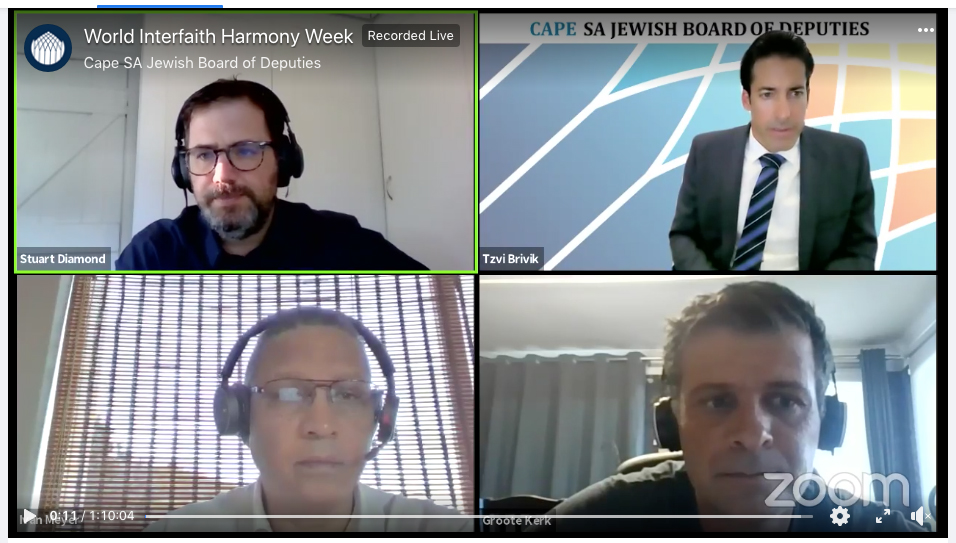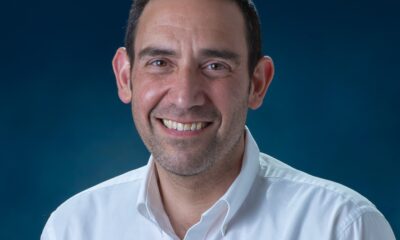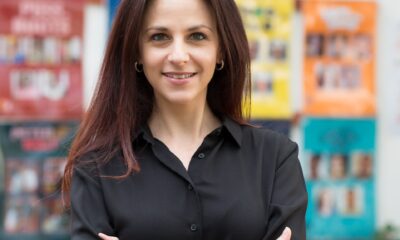
Featured Item

Communities come together to keep the faith during COVID
Published
3 years agoon
The COVID-19 pandemic has shown that no matter who they pray to, religious communities have a lot in common and are dealing with similar difficulties.
Recognising the power of coming together to share experiences, impart wisdom, and optimise solutions, the Cape South African Jewish Board of Deputies (SAJBD) hosted a webinar titled, “Coping with COVID: thoughts of the interfaith community” on Thursday, 4 February, during the United Nations Interfaith Harmony Week. The Cape SAJBD has been commemorating the event annually since 2012.
The event opened with Cape SAJBD Chairperson Tzvi Brivik lighting a candle in memory of those lost to the pandemic, and cantor Ivor Joffe singing the haskarah in an empty shul as faith leaders took a moment to pray for healing across the globe.
Dominee Riaan de Villiers of the NG Groote Kerk said that at the beginning of lockdown, community leaders focused on caring for their most vulnerable. This included everything from helping people to stay positive and connected, to assisting a community member with how to use an ATM as he usually went into the bank.
“I would think about how our church is one of the oldest buildings in the city, and how it has witnessed many crises, including pandemics,” said De Villiers. “While the building has always been a place of stability and connection, under lockdown, we had to find other ways for people to connect.”
They scheduled online readings and music, shared news over social media, and encouraged people to pray for healthcare workers and leaders. He said many congregants appreciated the time to reconnect with family under lockdown. “Life is so busy and stressful, it was something of a Sabbath.”
De Villiers expressed concern about the spread of conspiracy theories that are often religion-based. “This is bad theology as it could be life threatening. We have a responsibility as preachers to share a message of hope, kindness, and love.” He said the pandemic forced religions to “think anew about concepts in the Bible”, and had “exposed clear fault lines in society that we as faith-based organisations need to seek justice for”.
Sheikh Ismail Keraan of the Al Azhar Masjid Educational Institute, one of the oldest mosques in District Six, echoed the responsibility of religious leaders to reject conspiracy theories. “We need to have critical thinking, especially these days. We need to stop irrational conspiracy theories. When people are impatient and lonely, they ‘act out’, and this leads to frustration. But if we all agree that this infection is life threatening, then our response in handling it must be real.”
From the beginning of the first hard lockdown until today, his congregation has fed more than 400 people in Woodstock and Salt River. It has also offered financial aid to those needing assistance with paying salaries and funeral costs, and its members have worked in an orphanage for abused children.
“We have had to communicate in creative ways. This ‘new normal’ goes against our inherent social nature as human beings. So we need to re-imagine and reshape the perspective of our life,” he said.
Keraan said it was a “wake-up call” to show that “we are all human beings on the Almighty’s earth. It has made us acutely aware of the fine line between life and death, sickness and health. If we don’t care for each other and co-operate, we’ll be going in the opposite direction towards aggression and injustice.” He thanked the Cape SAJBD for hosting the event, and said he looked forward to more interaction with the Jewish community.
Mlingane Poswayo, the director of the South African Baha’i Office of Public Affairs, also thanked the Cape SAJBD for creating a forum to share and explore ideas to deal with the crisis. He said many of his congregants were isolated due to lack of data and living in rural areas without reception. While they were able to provide data for some, reaching isolated community members was more difficult.
His community is focusing on working with children to ensure that they keep up with their education and teaching them real-life lessons of serving others through, for example, making masks for communities and helping to raise awareness about safety protocols.
“We hosted monthly virtual discussions with academics, media, and the government, and these were the highlight of my year. I learned so much from my fellow South Africans. It showed that we can have a socially cohesive society.”
Rabbi Sam Thurgood of Beit Midrash Morasha in Cape Town pointed out that “faith leaders feel losses more keenly [during the pandemic] as they are conducting the funerals, comforting the mourners, and facilitating the mourning process”, all in very challenging circumstances. In addition, they are helping congregants to navigate huge losses from financial to emotional, and the full range of emotions that come with such an uncertain time. He said the virus had changed places of worship from spiritual sanctuaries to places where contagion could spread, which had been particularly challenging for all faiths.
“Teaching our communities to turn their homes into centres of prayer, study, and kindness has been a positive result of the pandemic, but on the other hand, some congregants say they now prefer praying at home,” he said. “This is a continuing challenge, but it’s been important to empower congregants. It’s the call of the hour.” He shared how a mother spoke about how much joy it brought to hear her son praying with his friends over Zoom, something she never got to hear when they prayed at school. “The sound filled their home. It became a house of prayer.”
Creating a sense of community and helping people to feel “safe and sane” is important, Thurgood said. “Zoom is great for delivery of a message, but it’s challenging for socialising.” He combatted this by telling children’s stories with puppets when schools were closed, and encouraging community members to imagine being in their shul garden, swapping stories and news of the week. Congregants also gave talks on their areas of expertise. Once lockdown eased, they started having “hybrid celebrations”.
“Having events online is a little sterile, so we sent packs around with fruits, treats, and drinks to enjoy during an online event so that we were all eating together like we used to,” Thurgood said.
He examined the question many are asking at the moment: “Where is G-d in all this suffering?” Looking at the parsha from a few weeks ago, when G-d told Moshe to “come to Pharaoh” to ask him to release the Jewish people – not “go to” Pharaoh – Thurgood explained that “G-d is where we act in a godly manner. When we act as G-d acts, we bring the presence of G-d into the world.
“While there are many things that G-d does that we cannot do, there are many that we can do, like acting with kindness, care, and compassion. So when people are struggling on so many levels, there is something everyone can do to reach out to one another. G-d is present in the world through us. A challenge to G-d is a challenge to us.”










